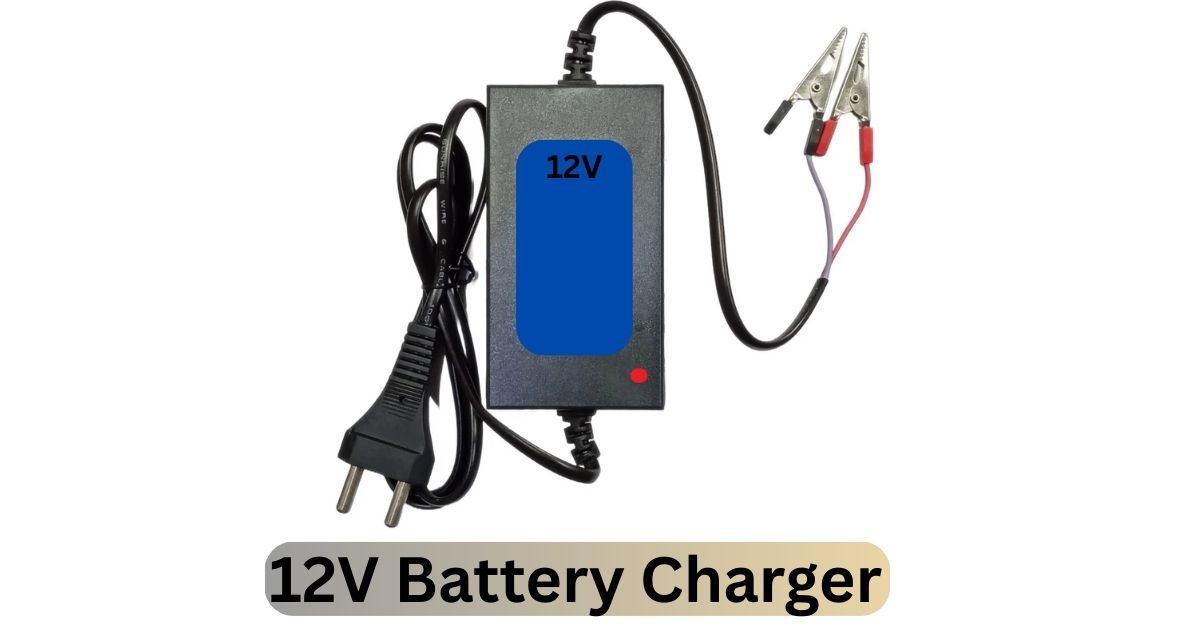When it comes to powering vehicles, boats, RVs, or even backup systems, a 12V battery is the backbone of reliability. However, without a good 12V battery charger, even the best batteries can fail to deliver when needed. Whether you’re a weekend camper, a mechanic, or someone just trying to keep their car battery in top shape, understanding and choosing the right charger is essential.
In this guide, we’ll cover everything you need to know about 12V battery chargers—how they work, the types available, features to look for, and how to pick the right one for your needs.
What Is a 12V Battery Charger?
A 12V battery charger is an electronic device used to recharge 12-volt batteries, which are commonly used in cars, motorcycles, boats, and small solar systems. These chargers work by supplying a constant voltage or regulated current to restore the battery’s capacity.
Modern 12V chargers often include smart technology that automatically detects battery condition, adjusts charging rates, and stops charging when the battery is full. This prevents overcharging and extends battery life.
How Does a 12V Battery Charger Work?
12V battery chargers convert AC (alternating current) from your wall outlet into DC (direct current) electricity to charge the battery. The charging process typically follows three stages:
-
Bulk Charging – Delivers a constant current until the battery reaches about 80% of its capacity.
-
Absorption Charging – Voltage remains constant while current gradually decreases as the battery approaches full charge.
-
Float Charging (Maintenance Mode) – Keeps the battery topped off without overcharging, perfect for long-term storage.
Advanced models include reconditioning modes, temperature compensation, and battery desulfation to improve overall battery health.
Types of 12V Battery Chargers
Choosing the right charger means understanding the types available:
1. Manual Chargers
-
Basic and inexpensive.
-
Require you to monitor and disconnect once charging is done.
-
Risk of overcharging if unattended.
2. Automatic Chargers
-
Stop charging when the battery is full.
-
Safer and easier for everyday use.
-
Ideal for most users.
3. Smart Chargers (Microprocessor Controlled)
-
Analyze battery condition and adapt charging stages.
-
Maintain and extend battery life.
-
Often feature LCD displays and diagnostics.
4. Trickle Chargers
-
Provide a very low, continuous current.
-
Good for maintaining battery levels in vehicles not in daily use.
-
Often used for motorcycles, boats, or seasonal vehicles.
5. Solar 12V Battery Chargers
-
Use solar panels to generate DC electricity.
-
Great for off-grid setups or eco-friendly charging.
-
Usually slower and depend on sunlight availability.
Key Features to Look For
When shopping for a 12V battery charger, keep these important features in mind:
Amp Rating (Charging Speed)
Higher amps = faster charging. However, too high an amp rate can damage smaller batteries. A 2A to 10A charger is ideal for most consumer uses.
Voltage Compatibility
Make sure your charger is truly built for 12V batteries. Some are dual-voltage (6V/12V), offering more flexibility.
Battery Type Support
Your charger should be compatible with:
-
Lead-acid batteries
-
AGM (Absorbent Glass Mat)
-
Gel-cell batteries
-
Lithium-ion (some models support lithium, but not all)
Safety Features
Look for:
-
Overcharge protection
-
Reverse polarity protection
-
Short-circuit protection
-
Spark-proof connectors
Portability and Build
A compact, lightweight design with a rugged build is ideal, especially for outdoor or roadside use.
Applications of 12V Battery Chargers
You’d be surprised how many uses a 12V charger can have:
-
Automobiles: Keeping your car battery topped off, especially during winter.
-
Motorcycles and ATVs: Ensuring readiness after storage.
-
RVs and Campers: Charging house batteries while on the move.
-
Marine Use: Keeping boat batteries maintained during off-season.
-
Solar Systems: Acting as a backup charger or used in hybrid setups.
Tips for Using a 12V Battery Charger
-
Always check battery specs before connecting.
-
Clean battery terminals for better conductivity.
-
Ensure the charger is off before connecting or disconnecting.
-
Charge in a ventilated area to prevent gas build-up.
-
For long-term storage, use a charger with maintenance or float mode.
FAQ: 12V Battery Chargers
Q1: Can I use a 12V charger on a 6V battery?
No, using a 12V charger on a 6V battery can overcharge and damage it. Always match the voltage rating.
Q2: How long does it take to charge a 12V battery?
Depends on battery capacity and charger amp rating. A 10A charger might charge a 50Ah battery in about 5–6 hours.
Q3: Can I leave a 12V charger connected overnight?
Only if it’s a smart or automatic charger with overcharge protection. Manual chargers should be monitored.
Q4: Do I need a special charger for lithium 12V batteries?
Yes, lithium batteries require chargers specifically designed to handle their charging profiles.
Q5: What happens if I reverse the charger’s polarity?
Most modern chargers have reverse polarity protection, which prevents damage. However, older or cheaper models may short circuit or damage the battery.
Conclusion
A 12V battery charger isn’t just a convenience—it’s a must-have tool for anyone relying on battery-powered vehicles or systems. From simple trickle chargers to advanced smart models, there’s a charger for every need and budget. Choosing the right one can save you from the frustration of dead batteries, improve your battery’s lifespan, and provide peace of mind during emergencies.
Always consider the type of battery you have, how often you’ll use the charger, and the level of automation you want. Whether you’re maintaining a classic car, storing a motorcycle for winter, or living off-grid with solar, a good 12V charger will keep your power ready and reliable.

